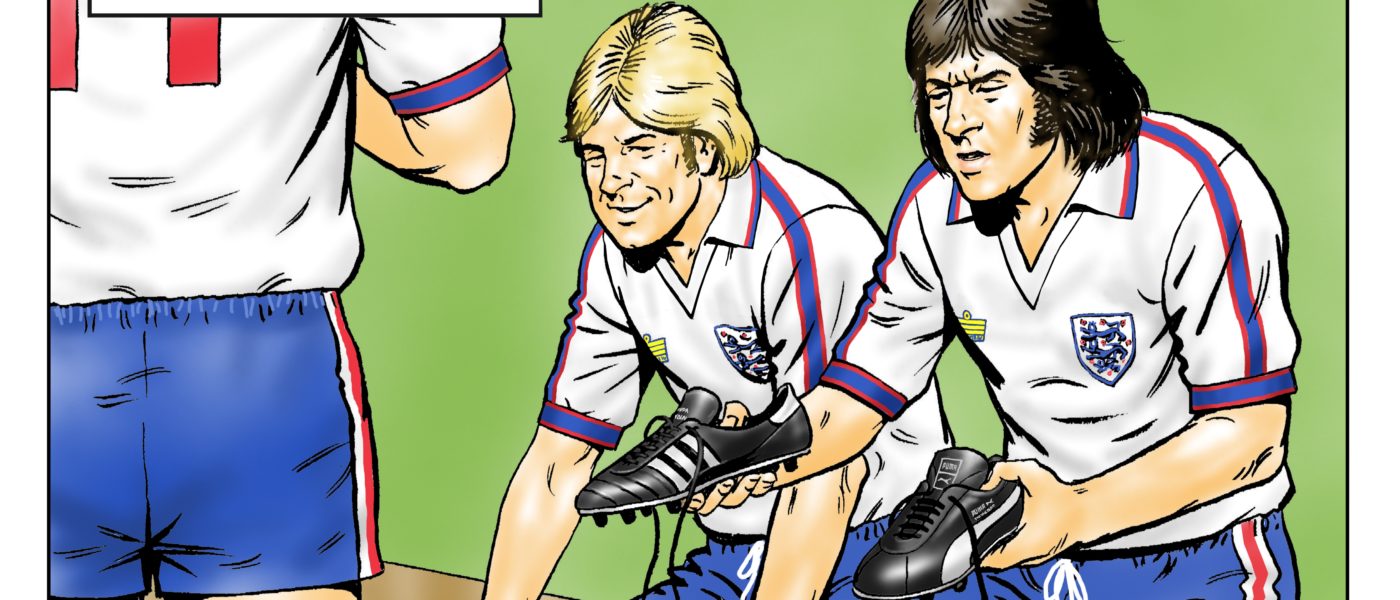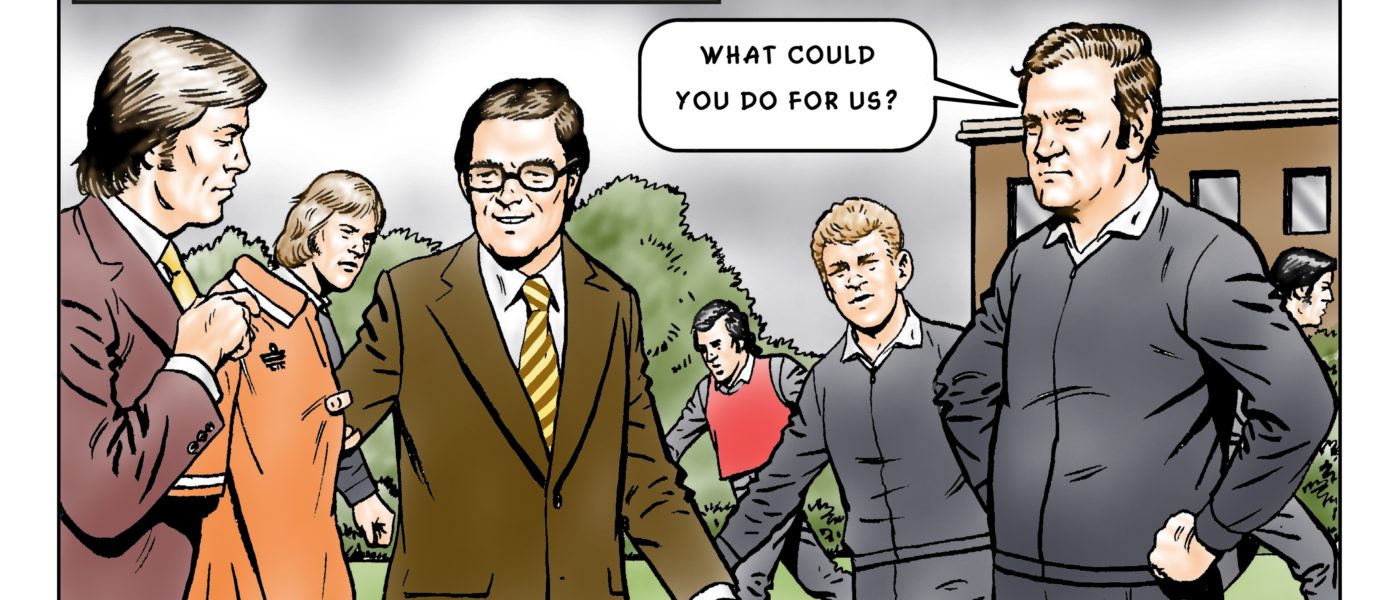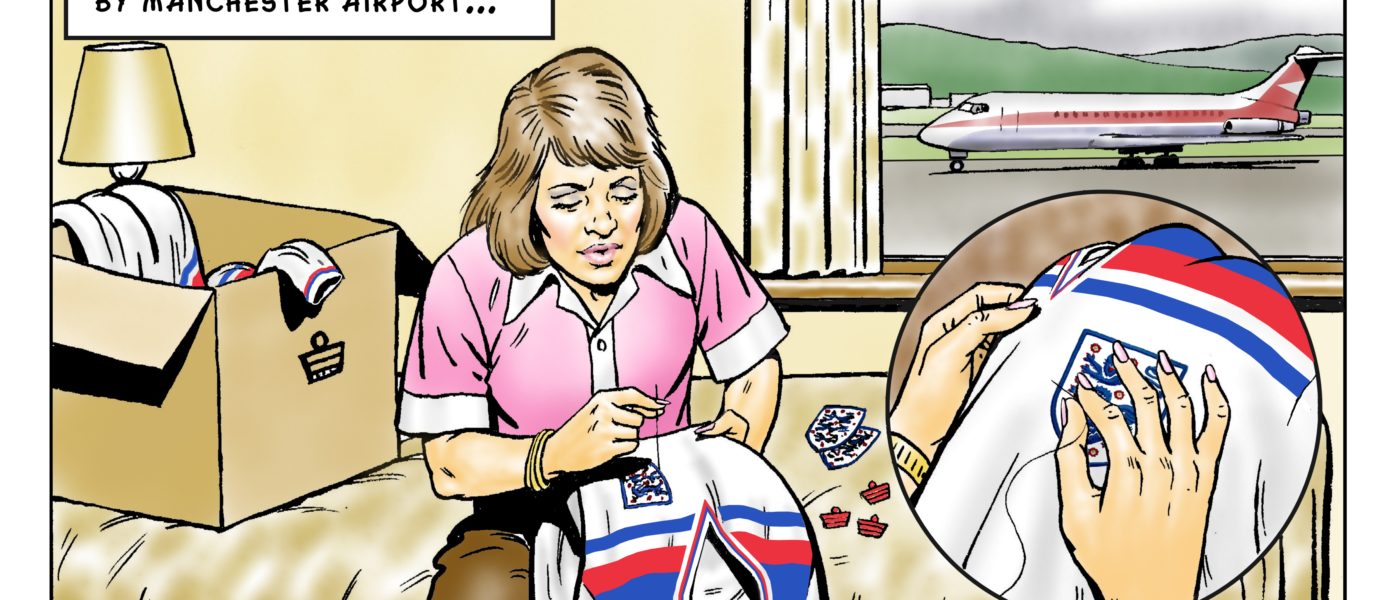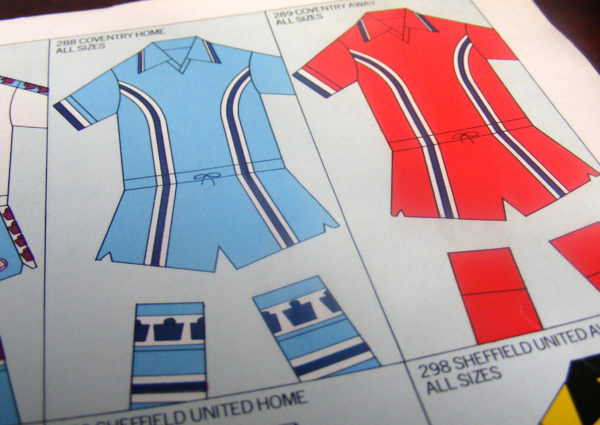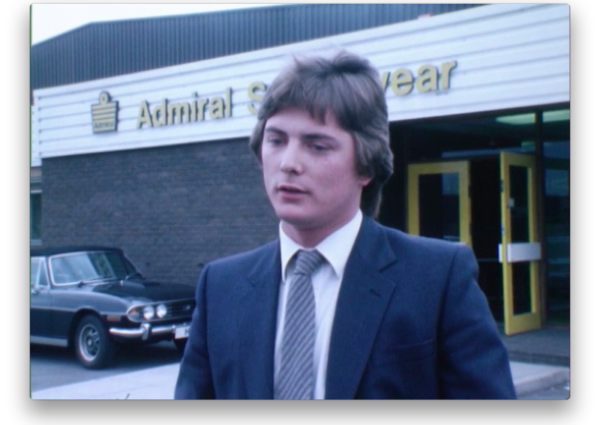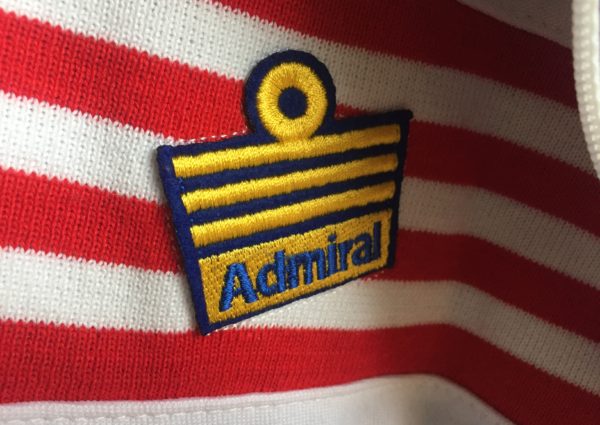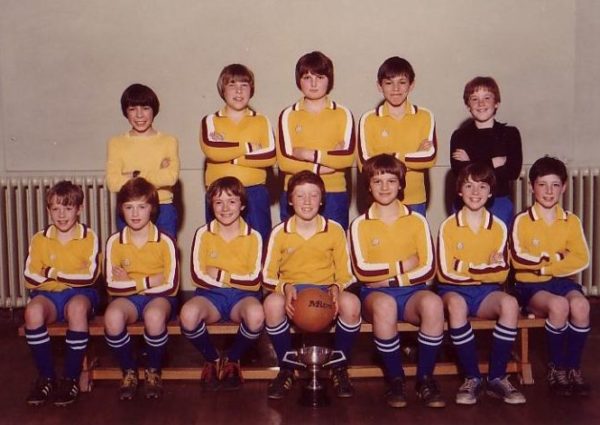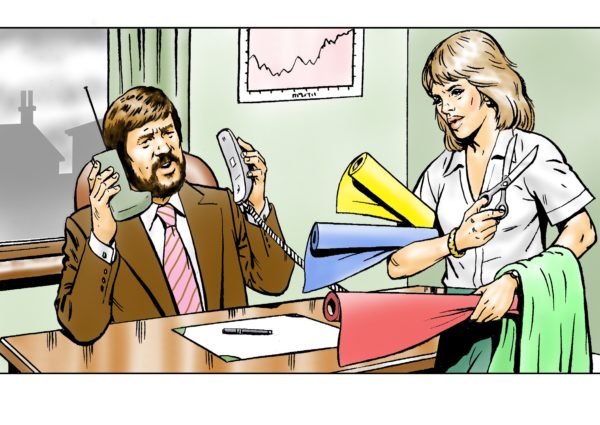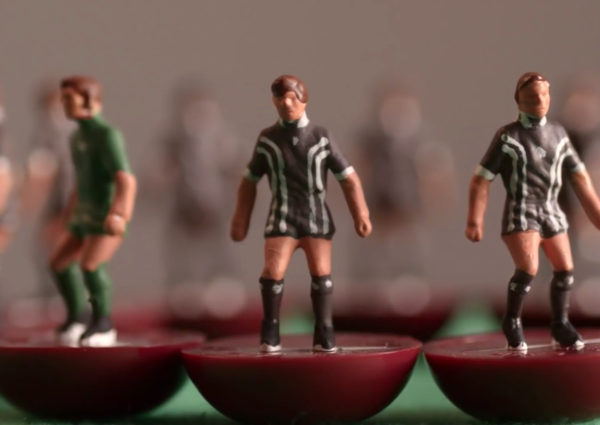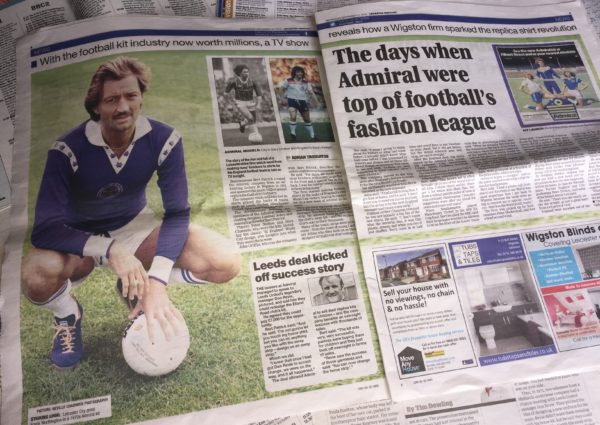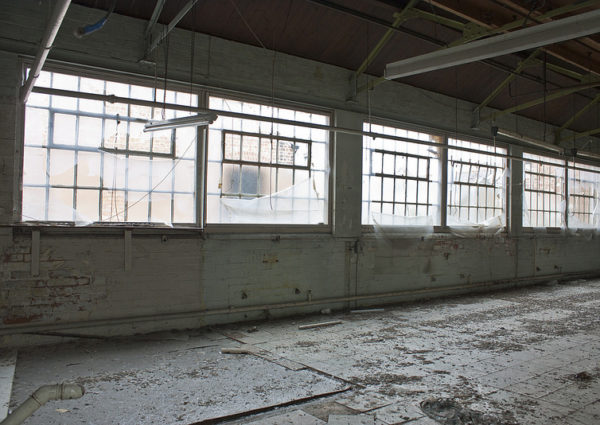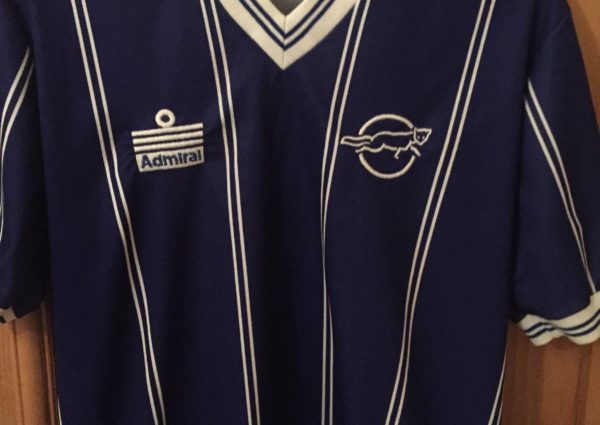Get Shirty: How a small
Midlands underwear firm changed
football forever
ITV1
“A charming, deftly told and very British tale” – The Guardian
Reviews
Get Shirty (ITV) told the story of what happened next: how Admiral came to design and manufacture kit for dozens of clubs and the England team. Along the way, it invented the replica kit and managed to produce the ugliest uniform in football history – Coventry City’s chocolate-brown strip (now, perversely, the most sought after by collectors). It was a charming, deftly told and very British tale – which concluded with a struggling Admiral staking all its fortunes on England’s World Cup performance. You don’t have to know much about football to know what a terrible position that is to be in.
Today’s multimillion-pound replica football shirt industry, this engaging documentary suggests, began with the bosses of a small Leicester clothing firm bumping into the Leeds United manager Don Revie. Revie agreed to Admiral making Leeds strips, and, on becoming England boss in 1974, asked them to dress the national side, too. In it’s 1970s heyday, the firm did deals with other leading clubs, and led the way in (kids-only) replica kits and on-shirt branding. Full of disarming characters and vivid anecdotes, it’s a story well told here, one serious error apart – what happened to Admiral in the 1980s is daftly given away in an auto-spoiler introduction.
Remember Admiral football kits? They were a phenomenon in the 1970s, replacing the flat-coloured “football jerseys” of the 60s with big-collared, lairy polyester strips that had extra stripes, yokes, badges and, of course, Admiral logos – and conjuring up the replica kit business at a stroke.
The men and women behind Admiral, which started as a Leicester underwear firm, tell their story here for a great, nostalgic documentary. At one point, a comic-strip sequence illustrates the firm’s big break when bosses happened upon a Leeds United training session and persuaded manager Don Revie to let them design the team’s away kit – in dazzling yellow, as it turned out.
When Revie became England manager, the firm took off. “They changed the whole way the game looked,” says one contributor, though several recall a dud, the infamous Coventry away kit in chocolate brown. These were a laughing stock at the time – but now change hands for £500.
ITV’s wonderful docu Get Shirty charted the meteoric rise of Admiral from a family firm making nuns’ knickers to manufacturing England’s football kit. But it also examined its fall after the 1982 World Cup, which was frankly inevitable and completely unavoidable. They needed England to win.
The story of the rise and fall of a Leicestershire firm which went from making nun’s knickers to shirts for the England football team is told on TV tonight.
Local businessman Bert Patrick created the Admiral company from an old knitting factory in Wigston in 1972 and spawned the multi-billion pound football replica shirt industry. The company made millions and its shirts graced the backs of teams like Leeds United, Manchester United, Spurs and Leicester City.
The documentary features key members of the Admiral team – including designer Lindsay Jelley, managing director Bert Patrick. Players Peter Shilton and Mick Channon, who wore the kits, including the classic England World Cup ’82 design, give insights into what they were like to wear.
John Griffin, who ran the company with Bert Patrick, describes the rather unglamorous beginnings. He said: “For nuns we made very large knickers, with a very large flap in the front and a special flap in the back. “I was too embarrassed to look at them being made.”
The firm started making football shirts in the wake of England’s 1966 World Cup victory, hoping to capitalise on a new wave of interest in the game.
They got their big break when Bert and John got to chat to Don Revie about their new strip. He allowed them to redesign the club’s away kit – and the replica shirt sold in their thousands.
Many of the iconic strips were yet to come – from the hand of young Lindsay Jelley, who they took on as their designer straight out of art college.
She said: “I wasn’t going to think about the history or what had come before, I actually didn’t know what had come before. “I was interested in colours and shapes and all these different things, so as long as they came to me and said, ‘Lindsay we need something in these colours,’ Away I went, I loved it.”
The company moved to the next level after England’s failure at the 1974 World Cup. Sir Alf Ramsey was fired with Don Revie installed as the new manager. John said: “I had a call to ring Don Revie, I got him at home, and he said, ‘I don’t want you to mention this to anybody but I’m going to be the next England manager and I want a new strip.'”
England striker Mick Channon revealed he was not initially a big fan of the new shirts. He said: “I don’t know what the material was, it was like plastic almost, and when you run and it just chaffed. “You’d come in at half time and you’d have to put Vaseline on your chest but it did get better, but the initial Admiral gear was crap, let’s get it straight.”
After the England deal, top clubs signed up for Admiral kits, including Manchester United, Spurs, Coventry, Norwich and West Ham.
During this period, Coventry City’s infamous brown kit was produced.
John Griffin, who ran the firm with Bert, said: “The brown kit is often brought up as one of the worst kits of all time. “I think that’s unfair, there’s a lot worse kits than that but from a colour palette point of view it was certainly challenging. “Coventry supporters were after my blood for years and years and years.”
When Southampton played Manchester United in the 1976 FA Cup final, Bert recalled that the BBC said their large logos wouldn’t be allowed to be on the front of the teams’ tracksuits due to advertising rules. Bert said: “What we actually did was put the Admiral on the back of the tracksuit jacket so when the players came out the tunnel the cameras would be behind the players, and of course we got wonderful exposure.”
Soon Admiral’s much larger foreign rivals Adidas and Le Coq Sportif started to take notice. Their rival kits, made in South East Asia, were produced at a fraction of the price of the Admiral strips. The company began to struggle – just as the game started to develop a reputation for hooliganism.
Bert said: “I had a phone call from one of our directors to say that it was most important that I got back to Wigston because the bank were going to request me to appoint receivers, that was the death knell really.”
The firm was picked up by businessman Peter Hockenhull, and had a brief second wind. Peter said: “I love football, I was seduced by this industry, I was, absolutely. “All of a sudden I’m in showbusiness, and I don’t say that lightly because the perception of Admiral was huge.”
Before the 1982 World Cup, a second new England kit was launched, aiming to put Admiral back in the big time. While popular with fans, the polyester strip proved too hot for players during their game against France in Bilbao.
Striker Paul Mariner lost 11lb in the sweltering heat.
So designer Debbie Jackson was sent out with a new batch and instructions to sew the new badges on, within 24 hours, in time for the next game. Former England and Leicester City goalkeeper Peter Shilton, said some of the badges weren’t straight. He said: “There was one nearly under the armpit, so not a great start from a kit point of view.”
England were knocked out of the World Cup in the group stage, and Umbro picked up struggling Admiral’s kit contract. Peter Hockenhull said: “What was becoming more and more evident was that you needed millions behind you to take Admiral where you needed to go, and I was not this millions and millions.”
Author John Devlin said what Admiral created has grown into a massive sportswear industry. He said: “Admiral’s first deal with Leeds was worth £7,000, and just recently Real Madrid signed with Adidas for £1 billion – the world’s first billion-pound kit deal. “So now the biggest clubs in the world, the biggest nations in the world, huge amounts of income are given to them by their kit suppliers. “What this little firm in Leicester created has rippled out throughout the whole of football.”
How the deal with Don Revie kick-started the big time.
The bosses at Admiral managed to speak to Leeds United’s legendary manager Don Revie and told him they could redesign their kit. He agreed they could pay £7,000 for the opportunity. Bert said: “And he said, ‘I’m not gonna let you touch my home shirt, but you can do anything you like with the away strip – design us an away strip,’ Which we did, ‘Design us a tracksuit,’
Which we did. “I knew that once I had got Don Revie to accept change, we were on the way, and it all happened.”
The deal allowed Admiral to sell their replica kits to children – and the company became an overnight success with thousands of sales. Bert said: “The kit was very, very successful, parents were buying them for children and they just took off overnight in terms of sales. “Revie saw the success of those garments and said, ‘You can now change the home strip.’

